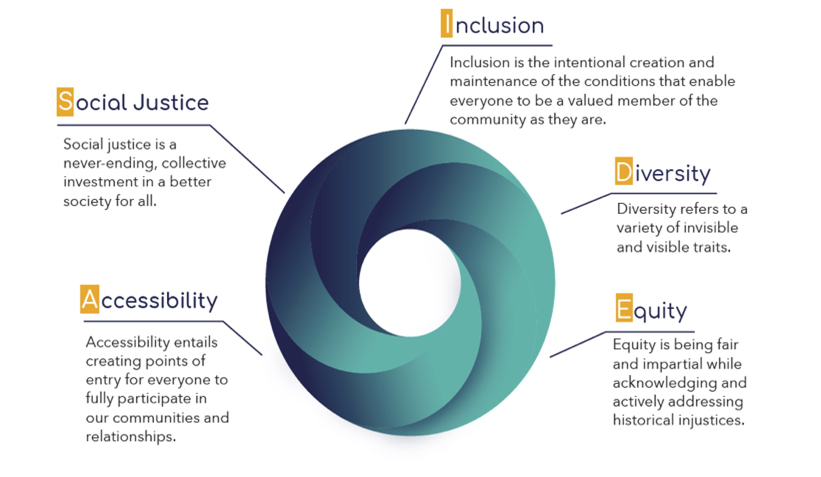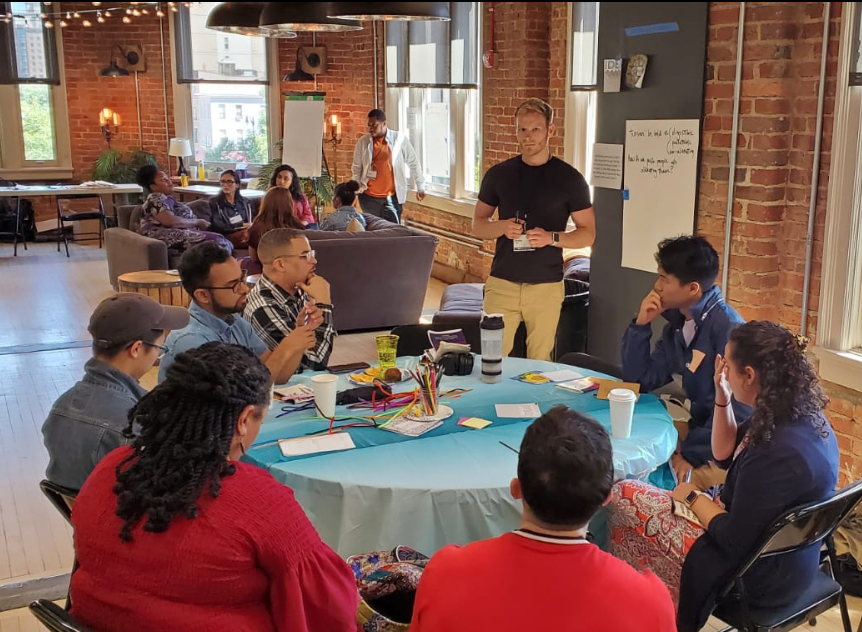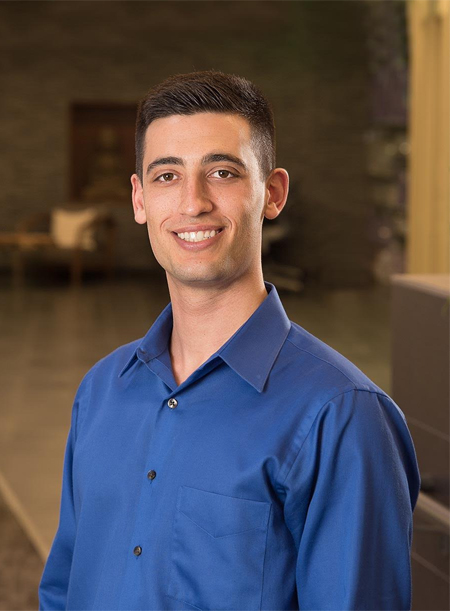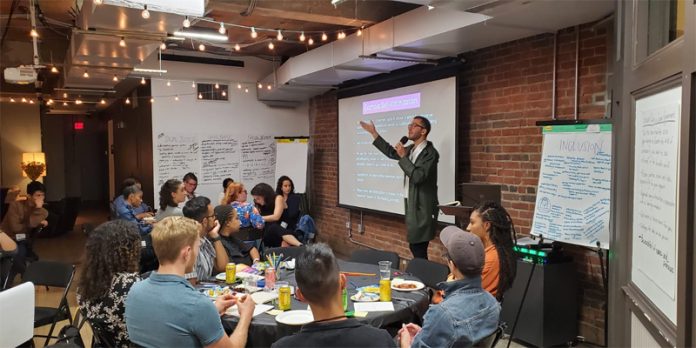In this week’s guest column, Inclusion NextWork (INW) Executive Director Dan Egol explains how their IDEAS framework can help to create fair leadership skills and leaders capable of cultivating a more equal workplace, society and world. IDEAS stands for: Inclusion, Diversity, Equity, Accessibility and Social justice principles. Egol believes that by incorporating these values into our personal and professional lives, we “can help to create a fairer world for all”. “IDEAS provides a more comprehensive framework to help emerging generations address historic inequities and systems of inequality we have inherited,” according to Egol.
Inclusion NextWork (INW) is a global network of emerging leaders passionate about innovating the ways we build relationships, organisations and communities so that everyone can thrive. In pursuit of our mission to connect, support, and elevate the next generation of IDEAS (Inclusion, Diversity, Equity, Accessibility, Social Justice) champions and communities, INW convened an intergenerational group of 50 IDEAS leaders and allies to discuss the future of bringing these principles to our organisations and communities.
Drawn from insights generated during our time together, we co-created a report entitled, IDEAS for the Future from Next-Gen Leaders. Through six thematic areas, elaborated upon below, the report articulates why and how next-gen leaders aim to activate IDEAS for social change and provides considerations for organisational strategy, as well as reflection questions for practitioners and advocates at varying stages of their journey with this work.

Theme One: Intersectional & For Everyone
In a 1989 paper, Kimberlé Crenshaw codified intersectionality as a framework to understand the impact of and relationships between the overlapping or ‘intersecting’ parts of one’s identity. Thirty years later, the term’s enduring relevance has made the concept a staple in many diversity and inclusion (D&I) conversations.
Intersectionality is vital for advancing IDEAS because it invites everyone to take responsibility for IDEAS work, not just those from historically marginalised communities who have had to disproportionately carry the weight of these efforts. By valuing intersecting identities, we honour the uniqueness of each person’s experience without minimising the real structural and systemic oppression that certain people face. Through intersectionality we can become attuned to the ways that our identities are multiple, how each part of who we are interacts with other parts of ourselves and with other people – who themselves have equally complex layers of identity. When viewed through an intersectional lens, the IDEAS work becomes a space for all to come together; intersectionality removes the prevalent ‘diverse/not diverse’ binary that prevents allies and members of dominant groups from meaningfully participating in social change efforts. It transforms diversity from a problem that ‘doesn’t apply to me’ into critical arena for collective and shared responsibility.
Theme Two: Vulnerable & Self Reflective
Systemic change starts with individuals. But we can only take others as far as we have gone ourselves. Understanding our limits, boundaries, assumptions and positionality through ongoing self-reflection and honest conversation is therefore critical to the IDEAS work.
Emerging leaders don’t demand perfection, but we do expect progress. Opening up ourselves to the vulnerabilities that come with learning and growth is a key way to foster self-reflective development. While there are different personal and cultural interpretations of ‘vulnerability’, our community defined the term as the ability to express one’s thoughts and feelings in an honest, authentic manner.
Vulnerability from others cannot be assumed or required, nor is it sufficient to simply declare that a space is ‘safe’ for such kinds of expression. Identity and privilege can heavily influence how vulnerable we feel we can afford to be. As emerging leaders who value authenticity, we have to proactively set the tone and intentionally create the conditions for others to participate fully. Mindfulness, self-reflection and vulnerability help build the trust and relationships needed to forge a strong foundation to carry IDEAS work forward.
Theme Three: Self Care & Wellbeing
Advancing IDEAS principles – and social change more broadly – is hard work. It is emotionally taxing and sometimes even dangerous. The burden of its labour is rarely equitably distributed. Organisations and communities too often neglect the psychological and emotional toll it takes for some individuals to continue fighting for respect, dignity, equity, belonging and, in some cases, even survival. In a field where so many prioritise the needs of others over our own, this theme reminds us that we sometimes need to put ourselves first so that we can show up most powerfully and effectively for others.
To sustain the IDEAS principles in our organisations and communities we must remember to tend to our emotional, psychological and physical needs. Doing so prevents burnout and ensures we center our own humanity as we tackle oppressive systems (racism, ableism, homophobia, transphobia, xenophobia, sexism, ageism and others) that would sooner see our personhood diminished.
Theme Four: Alliances & Partnerships
The current COVID-19 pandemic has consistently demonstrated the interconnectedness of our world. Like coronavirus, society’s most pressing challenges cannot be solved in isolation or with the resources of only a few. The possibility for partnerships and alliances in the IDEAS space is limitless, which is what makes this work both so exciting and complicated. Joining disparate groups, causes, and perspectives together creates opportunities for mutual learning and capacity building.
To move the needle on IDEAS, change agents must build cross-issue alliances, advocating for new policies and practices in multiple institutions simultaneously. Embracing an interdisciplinary mindset and taking advantage of every opportunity to collaborate is imperative to foster sustainable change. We must work in concert with one another such that our efforts have a collective impact.
Building strategic alliances and partnerships with organisations and individuals to tie people to events, movements, and resources is key to the advancement of IDEAS. With all the hard work ahead, there are countless roles to play. Being an ally and an accomplice matter. Alliances and partnerships provide the entry point for those roles to converge and become mutually reinforcing. They also reaffirm that we are not in these struggles alone, that we are better together.

Theme Five: Adaptive & Transformative
IDEAS is a framework for change that requires both adaptation and transformation. The D&I space has rapidly evolved over the past few decades, and it will continue to evolve at an increasingly rapid pace to keep up with the urgency of the current moment. Value systems and public opinions are changing as sociopolitical forces reshape our world. New technologies are fundamentally changing the way we interact. Former boundaries between the personal and professional and the political and the private are becoming increasingly permeable. Each individual choice, initiative and relationship can have a ripple effect on communities and the systems in which they exist.
The D&I field must continue to evolve to meet the increasingly complex challenges of our time, and emerging leaders as well as organisations need to evolve with it. In a 2015 study, Deloitte found that Millennials increasingly see inclusion not just as representative demographics brought together, but as a more fundamental underpinning of how organisations, teams and leadership function. Living into this expanded perspective requires both pragmatic adaptations of current practices and bold transformations at the heart of organisations and communities. Such transformations must also include considerations of equity, access and justice to rectify historical inequities, account for the built and cultural environment, and prioritise the greater good.
Theme Six: Innovative & Ongoing
Lastly, we cannot be more inclusive without also being innovative. When practiced well, IDEAS can foster innovation by harnessing the power of different perspectives and fostering an environment that values them. However, when IDEAS are stifled, innovation will suffer. This is because the stifling of IDEAS implies the silencing or exclusion of certain perspectives and experiences (which, ironically, may be exactly what the organisation needs to unlock the answer to a complex challenge).
IDEAS work never ends. No individual, community, organisation or society simply arrives at and sustains IDEAS excellence. Rather, this work is an ongoing journey that requires continual commitment, attention, accountability and a creative, innovative mindset. In much the same way that organisations are always striving for operational excellence, so too should they be ever aspiring and working towards IDEAS excellence.
CONCLUSION
We hope that the insights highlighted here serve as meaningful conversation starters, contribute to the evolution of IDEAS and inspire others to take actions toward a more just society – together.

BIOGRAPHY
Raised in a multi-cultural home with strong ties to both Cuba and Israel, Dan Egol grew up passionate about social justice, community building, and global affairs. Shortly after visiting his Cuban family in Havana for the first time in 2014, changes in family travel policy prevented him from accessing his family for eight years. This foundational experience taught Egol that an inability to appreciate and navigate diversity with nuance and humility divides communities.
To foster more progressive and enduring connections amongst and between different people groups, he studied political science and sociology at Middlebury College while working on campus at the college admissions office, the Americans with Disabilities Act Office, and a research centre focused on the comparative study of race and ethnicity. These experiences, reinforced by internships at the Smithsonian American History Museum, the Washington Office on Latin America, and the ACLU’s Racial Justice Project, led Dan to Cook Ross Inc, a DE&I consultancy. Over the course of five years there he held various roles, including Project Manager, Client Success Lead, and Chief of Staff.
In May 2020, Egol completed an MBA at the Yale School of Management as a Point Foundation Scholar, Consortium for the Graduate Study of Management Scholar, Hispanic Scholarship Recipient and Prospanica Scholarship Recipient. At Yale, he served as the Community & Inclusion Officer in student government, the co-chair of the Yale Philanthropy Conference, and the co-founder of ‘&Society,’ a weekly conversation forum for social justice topics not covered by the core MBA curriculum.
Egol is now the inaugural Executive Director of Inclusion NextWork, a Washington DC-based non-profit he co-founded with two former colleagues from Cook Ross. Inclusion NextWork aims to bridge the talent and network gap for Millennial and Gen-Z leaders in the IDEAS (Inclusion, Diversity, Equity, Access, Social Justice) space through community and leadership development programming, original research and thought leadership, and consulting services.








































